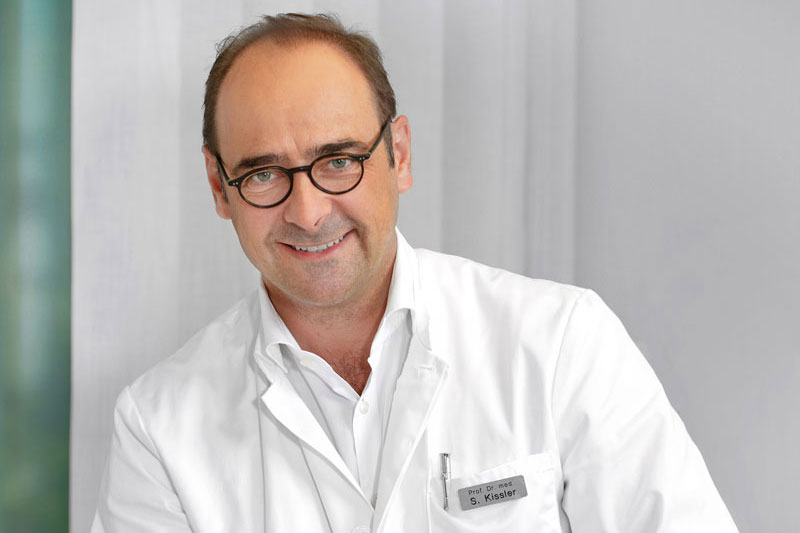
For this reason, during your first consultation we take a close look at hormonal analyses that have already been carried out, and complete the findings with hormone examinations in our own hormone laboratory. The most important examination takes place a few days after the onset of the monthly bleeding. Here, we identify the hormones that control the cycle, check the thyroid function, and measure male hormones in the female body and particular markers for the ovarian reserve, which can become weaker in older women.
With this blood sample and many years of experience in evaluating the results, the main causes of the four most common hormonal imbalances can usually be determined. Most often, we find imbalances relating to an increased level of male hormones (PCOS) in young infertile women. More rarely, hormonal imbalances may be due to a very low body weight (prior eating disorders), a clear thyroid function disorder or excess levels of prolactin.
In a large number of our infertile female patients, we often find that as age increases and until the wish for a child has been fulfilled, there are signs of declining ovary function from 35 years old and for which no medical cause can be determined. This regularly happens, even in healthy women who rarely had conspicuous results from their routine gynaecological examinations.
The biology of women simply means that “older” women (in relation to fertility) have a declining ovary function, which plays a significant role with regard to the success of treatment in these patients. For some time, the anti-mullerian hormone (AMH) has been identified in this presentation, as it is the best marker for measuring it.
Following the precise analysis of your individual hormone profile, we will discuss a suitable treatment programme for your hormonal imbalance with you, with the aim of successfully fulfilling your desire to have a child - for example with hormone stimulation therapy.



